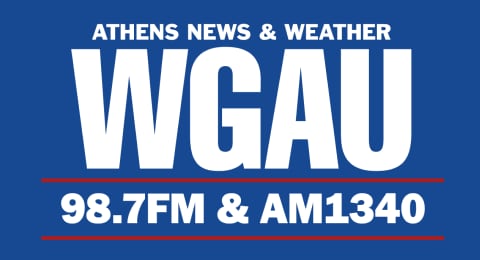NEW YORK — A dayslong holiday strike against Starbucks ended on Tuesday with the largest work stoppage ever carried out by the company's unionized workers, involving strikes at more than 300 stores in dozens of cities nationwide, the union Starbucks Workers United said.
"The company should be concerned because this is just the beginning," Michelle Eisen, a Starbucks barista in Buffalo, New York, and a member of the union's bargaining team, told ABC News.
The union and the company remain without a collective bargaining agreement at organized stores. Monthslong negotiations recently broke off over a disagreement about economic issues, including potential wage increases.
As workers fold up their placards and return to their jobs, a question looms: What happens next?
Labor experts who spoke to ABC News said the worker unrest could give way to a resumption of negotiations and an eventual contract agreement, as both sides find reason to resolve the standoff.
However, if a deal proves elusive, the workers may escalate their opposition toward the company with additional strikes or other pressure tactics, the experts said. The company may also pivot toward a more adversarial approach, leaving the bargaining table and cracking down on union organizing, the experts added.
The strike in recent days interrupted a period of relative calm between Starbucks and the union.
Starbucks Workers United and Starbucks announced in February that they would work on a "foundational framework" to reach a collective bargaining agreement for unionized stores. The union says Starbucks has failed to offer a viable proposal on economic issues, taking issue as well with the company's alleged refusal to resolve federal charges over illegal anti-union conduct.
Workers United told ABC News in a statement that Starbucks had proposed no immediate wage increases for most baristas and a guarantee of only 1.5% wage increases in future years.
Meanwhile, Starbucks said in a statement that the union had proposed an immediate increase in the minimum wage of hourly partners by 64%, as well as an overall 77% raise over the duration of a three-year contract. "This is not sustainable," a Starbucks spokesperson told ABC News.
Starbucks United contests those figures as a disingenuous characterization of its proposal, the union told ABC News.
"We've reached the position in the bargaining where we need to remind Starbucks who we are," Eisen said, pointing to public attention and worker strength demonstrated by the recent strike.
Starbucks did not immediately respond to ABC News' request for comment.
Sara Kelly, Starbucks' executive vice president and chief partner officer, downplayed the impact of the strikes in a public letter to employees late Monday.
"The overwhelming majority of Starbucks stores across the country have opened as planned and are busy with customers enjoying the holidays," Kelly said, noting that the company operates 10,000 stores and employs 200,000 people nationwide.
"The union chose to walk away from bargaining last week," Kelly said. "We are ready to continue negotiations when the union comes back to the bargaining table."
The show of worker strength could induce a better offer from Starbucks, since the company may recognize the public relations threat posed by the prospect of more headline-grabbing worker protests, some experts said.
"Starbucks has to continually worry about getting a new generation of customers on board with their product," Matthew Bodie, a law professor at the University of Minnesota who focuses on labor issues, told ABC News, pointing to the company's reputation as a liberal-minded employer.
Still, federal labor law affords wide latitude for a company to delay a collective bargaining agreement and lacks the large penalties necessary to compel an agreement, granting Starbucks sizable leverage over the next step in the labor dispute, Bodie added.
"The traditional management playbook is to fight, fight, fight," Bodie said. "I see it as largely a decision for Starbucks to make because our system gives so much power and discretion to companies in how they manage collective bargaining."
If Starbucks opts to forgo a new proposal, the union could shift toward a more militant strategy that resembles the previous approach taken by the campaign, experts said.
In 2022 and 2023, Starbucks workers at the company carried out about 100 strikes per year, Johnnie Kallas, a professor of labor relations at the University of Illinois who tracks strike activity, told ABC News. The recent holiday strike marks the first work stoppage of 2024, since the union had pivoted toward a more cooperative approach amid negotiations, Kallas said.
"If Starbucks doesn't meaningfully negotiate on economic proposals, you'll see a rise in militancy," Kallas said. "The workers may reach a fork in the road."
Meanwhile, the company could also opt for a more adversarial approach, experts said. The negotiations this year have reflected a friendlier public posture from Starbucks. As recently as last year, former Starbucks CEO Howard Schultz said he didn't believe unions had any place at the company.
The National Labor Relations Board, or NLRB, the federal agency that enforces labor rules, is expected to become more sympathetic toward management under President-elect Donald Trump, experts said. Starbucks could shift toward an increasingly hostile approach, knowing it's unlikely to face much pushback from the NLRB, the experts added.
"If it remains a private negotiation between Starbucks and the union, it could go nowhere under Trump," John Logan, a professor of U.S. labor history at San Francisco State University, told ABC News.
For now, Eisen said, union members plan to catch up on some rest over the holidays and weigh the path forward. Beyond doubt, however, are the union's plans to continue organizing new stores, Eisen said.
Workers United organized more than 150 stores in 2024, bringing the total number of unionized stores to about 540.
"You always want your movement to grow," Eisen said. "The bigger we are, the stronger we are."
Copyright © 2024, ABC Audio. All rights reserved.





